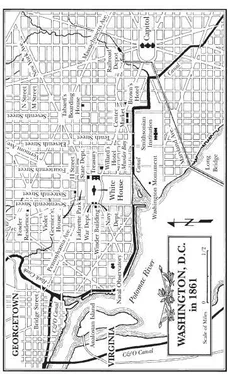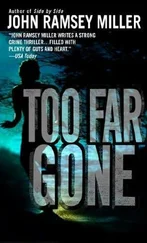John Miller - The First Assassin
Здесь есть возможность читать онлайн «John Miller - The First Assassin» весь текст электронной книги совершенно бесплатно (целиком полную версию без сокращений). В некоторых случаях можно слушать аудио, скачать через торрент в формате fb2 и присутствует краткое содержание. Жанр: Исторический детектив, на английском языке. Описание произведения, (предисловие) а так же отзывы посетителей доступны на портале библиотеки ЛибКат.
- Название:The First Assassin
- Автор:
- Жанр:
- Год:неизвестен
- ISBN:нет данных
- Рейтинг книги:3 / 5. Голосов: 1
-
Избранное:Добавить в избранное
- Отзывы:
-
Ваша оценка:
- 60
- 1
- 2
- 3
- 4
- 5
The First Assassin: краткое содержание, описание и аннотация
Предлагаем к чтению аннотацию, описание, краткое содержание или предисловие (зависит от того, что написал сам автор книги «The First Assassin»). Если вы не нашли необходимую информацию о книге — напишите в комментариях, мы постараемся отыскать её.
The First Assassin — читать онлайн бесплатно полную книгу (весь текст) целиком
Ниже представлен текст книги, разбитый по страницам. Система сохранения места последней прочитанной страницы, позволяет с удобством читать онлайн бесплатно книгу «The First Assassin», без необходимости каждый раз заново искать на чём Вы остановились. Поставьте закладку, и сможете в любой момент перейти на страницу, на которой закончили чтение.
Интервал:
Закладка:
At the rear of the market, where a number of the seafood sellers kept their stalls, Rook found himself watching an old man train a boy in the art of fish cleaning-chopping off the head and fins, removing the guts, scraping the scales. It reminded him of a similar lesson his grandfather had taught him many years earlier. He watched with amusement as the boy struggled to perform the sloppy chore his employer could complete in a matter of seconds.
Not by rail, river, or road. The riddle forced its way back into his thoughts. Was there a way the shipment could arrive by land but not by road? Suddenly, a shout caught his attention.
“Colonel!”
Rook saw Springfield trotting toward him from the front of the building.
“What’s the news, Sergeant?”
“Davis and Stephens boarded an omnibus a few minutes ago. Corporal Clark got on with them.”
“Do we know where they’re going?”
“They were headed toward Georgetown.”
“I don’t suppose you were able to communicate with Clark.”
“Actually, I was. He nodded to me, very faintly-and he did not give the signal that he needed anybody to trail behind. I assume he’s just going to follow them around. We’ll get a report when he returns.”
“If we had more men assigned to this operation, we would be able to send a whole team after them.”
“At least one man is better than none.”
“True. Perhaps Clark will come back with more information. I just can’t get Davis and Stephens out of my mind. They are an enigma.”
“What do you mean, sir?”
“This business about rails, rivers, and roads confounds me. How can something possibly arrive here if it doesn’t come by rail, river, or road?”
“It’s quite a riddle, sir. In a lot of other cities, it wouldn’t be much of a problem. But here it’s a stumper.”
Rook arched his eyebrows. “What do you mean?”
“I was thinking about this. Most of the cities on the East Coast aren’t on rivers, or at least not ones that link them to the rest of the world. They’re beside harbors or bays or other bodies of water. Boats come and go without ever touching rivers. Give me that same riddle in New York or Baltimore and the answer is easy-so easy it isn’t even a riddle.”
“That had not occurred to me,” said Rook. “Of course, it’s academic.”
“Right. In this city, a boat must come up the river to get here.”
Something in that sentence caught Rook’s ear. He repeated it in his mind: A boat has to come up the river to get here. “The same thing is not true in some other cities,” he said.
“What do you mean?”
“Take a place like New York City,” offered Rook. “You’re right that most of its water traffic comes from the harbor. Not all of it, though. Some actually comes down the Hudson River. So lots of boats must reach that city by river-they come not from the ocean, but the interior of the country.”
“I suppose that’s correct.”
“But it’s academic too. The Potomac is not navigable much past Georgetown. Even if it were, it would still be a river-and we would be no nearer to solving this riddle.”
Their conversation sputtered to a halt. They looked at the two fish cleaners, the old teacher and his young student. They had just created a stack of filets. A mound of leftover fish parts sat in front of them.
“Customers don’t want to see that,” said the man, pointing to the heap of heads and guts. “We need to get it out of sight.” He pushed the mess into a bucket with his knife. “This is full,” he said, grabbing the bucket’s handle and giving it to the boy.
“Carry it around back.”
The youngster took the bucket and left the stall. He passed in front of Rook and Springfield and walked through an open door. Sunlight fell on his head. He stopped in plain sight of the two soldiers, lifted the bucket, and dumped its contents, which splashed beneath his feet. Then the boy turned around and came back in, swinging his empty bucket.
“Do you have the same thought as me?” asked Rook.
Now it was Springfield who arched his eyebrows.
“Let’s go!”
The dogs were getting closer.
Portia and Joe splashed down the stream, running with the current. They moved as quickly as they could. “Don’t let your feet touch the bank on either side,” warned Portia. The temptation to get out was strong. The water sucked at their heels with each step, making their run twice as strenuous as it would be on dry land. Yet the barking propelled them forward. Each yap was like the prick of a spur.
Jeremiah was still with them, but they knew he would not be for long. “Get in the water,” he had yelled when they first heard the dogs. Portia had lost all track of time. Had their run started five minutes ago-or half an hour ago? She wasn’t sure and didn’t care. All she wanted was to get away from the dogs. The little brook seemed their single hope-the only thing that might cover their scent and keep them free just a little bit longer.
They could not tell how much ground lay between them and their pursuers. The trees and rocks played tricks with the sound and made it impossible to know. For a time, Portia had thought they might actually get away. The barking remained faint. Then it erupted. Then it stopped completely. For a while they heard nothing. The slaves even stopped racing at one point to listen, and the only sound they heard came from the trickling water of the creek. Portia’s hopes rose, only to crash minutes later when the barking started again-and grew steadily louder. “They must’ve paused at our hideout,” panted Joe.
When they reached a small meadow perhaps half a mile later, Jeremiah halted them. “This is where we gotta split up,” he said. “You gotta go your way, and I gotta go mine. There’s nothin’ more I can do for you.”
“You gotta promise not to say nothing about us,” said Portia.
“I ain’t gonna do that. If I did, everybody would know I helped you. I’m gonna say that I ain’t never seen you.”
“OK, and we won’t say nothin’ about you if we’re caught.”
“Here’s what you gotta do: keep runnin’ down the stream. After a while, get out and rush away as fast as you can. Don’t leave no footprints in the mud. If we’re lucky, the dogs can’t smell us now-they’re runnin’ along the banks trying to pick up a trail they’ve lost. You gotta hope they miss you and keep on going. Then you can get back on the road tonight.”
Somewhere behind them, the barking continued.
Jeremiah looked over his shoulder. “No more time for talk,” he said. “Good-bye.” He leaped out of the water onto a log. He walked its length away from the creek and took a big jump into the woods. Then he was gone. Portia looked intently but could see no physical evidence of Jeremiah having left the creek.
“I guess that’s how it’s done,” said Joe.
The two slaves resumed their flight. For a while, the dogs did not seem to gain on them. Then the barking became noticeably louder. Suddenly Portia stopped. Joe nearly collided into her.
“We gotta do something,” she gasped.
“They’re gonna be at least a few minutes behind us. We should keep runnin’. No time for restin’.”
“If we keep runnin’, they’re gonna catch us. We gotta get away from the river. We gotta make a move.”
Joe saw Portia looking at a tree that had fallen into the streambed. Once it had stood tall, and now it lay long. The trunk had cracked near its base, but somehow the tree remained alive. Several young branches reached upward.
“OK, we’ll do it here,” said Joe. “Jeremiah left on a log. That’s what we’ll do.”
Portia put a foot on the tree and was about to lift herself up when Joe stopped her.
Читать дальшеИнтервал:
Закладка:
Похожие книги на «The First Assassin»
Представляем Вашему вниманию похожие книги на «The First Assassin» списком для выбора. Мы отобрали схожую по названию и смыслу литературу в надежде предоставить читателям больше вариантов отыскать новые, интересные, ещё непрочитанные произведения.
Обсуждение, отзывы о книге «The First Assassin» и просто собственные мнения читателей. Оставьте ваши комментарии, напишите, что Вы думаете о произведении, его смысле или главных героях. Укажите что конкретно понравилось, а что нет, и почему Вы так считаете.












